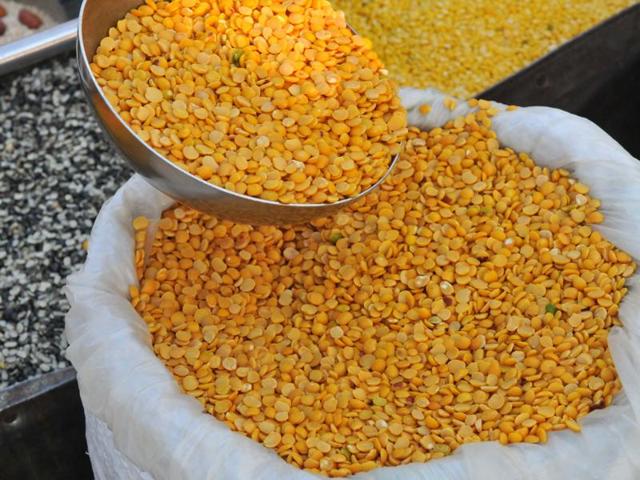Speculation adding to soaring pulse prices, allege traders in Indore
While shortage of pulses and festive season demand are driving the commodity prices higher, rampant speculation has also contributed to the recent spike, allege traders in Indore.
While shortage of pulses and festive season demand are driving the commodity prices higher, rampant speculation has also contributed to the recent spike, allege traders in Indore.

The prices of tur (arhar) dal have gone up by Rs 18 per kg in past three days in the wholesale markets in Indore to touch Rs 190 per kg.
“Dabba trading (illegal speculation) is also contributing to the rising prices. The government should maintain a buffer stock to keep the prices in check,” said Dayal Gangwani, vice president, Indore Dal-Chawal Vyapari Sangh.
A trading that is carried out outside the purview of the market regulator is called dabba trading.
“Multinationals (MNCs) and retail chains also create artificial shortage by buying the crop directly from farmers at cheaper rates and holding on to the stocks for a long duration,” a mandi official said on the condition of anonymity.
Experts say that prices are unlikely to come down in near term as erratic rainfall has hit kharif production.
“The domestic supply of tur and urad will start only in December. The imports are too meagre to make any significant impact,” wholesale trader Prakash Khandelwal said.
Prices of pulses have seen a steep rise over the past 12 months, with tur dal and urad dal more than doubling to touch an all-time high.
In May this year, a study released by industry body Assocham in Indore had warned of steep hike in prices of pulses.
“Unseasonal rains and hailstorm during the rabi season have damaged rabi (winter) crop. Trade sources estimate total pulses production at 17.5 million metric tonne (MMT) for 2014-15, which is a decline of 2.28 MMT over previous year,” Assocham secretary general DS Rawat had said.
The Assocham had said that the demand-supply gap for pulses in India was expected to rise to 6 MMT in the current year from 4 MMT last year and this would lead to rise in imports and a further increase in prices.
Madhya Pradesh is the largest pulses producer in the country followed by Maharashtra, Rajasthan and Uttar Pradesh, which change places depending on the weather and productivity during a particular year.




